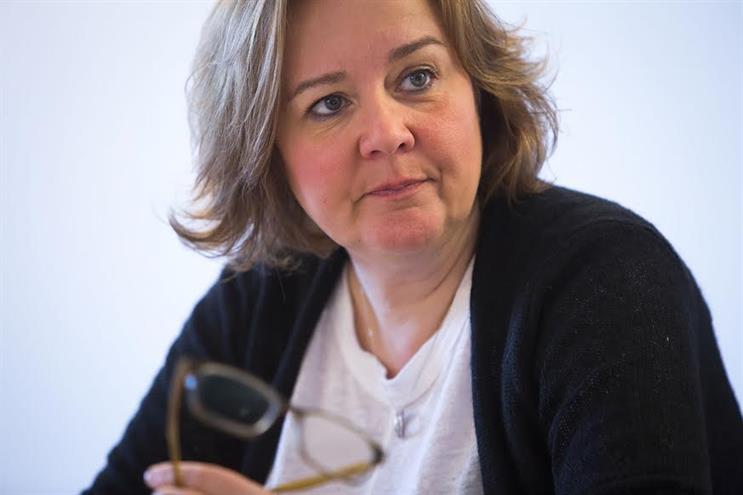
Just one year ago at Pride in London, the UK's biggest LGBT+ event and London's second biggest free day out, we celebrated the Supreme Court's decree that equal marriage is a Constitutional right.
This year, we will again be standing with our American friends in solidarity, but this time in sadness and horror for the 50 people massacred in America's deadliest mass shooting in living memory.
In the UK, we could be forgiven for thinking that the battle for equality is won.
It is not.
Yes, we have equal marriage. Yes, we have same sex couples in ads. And yes, the Prime Minister holds an annual LGBT+ reception in the garden of 10 Downing Street.
But in truth, we don't have universal marriage rights; just ask LGBT+ people in Northern Ireland. Trans people still have to jump through hoops to have their gender identity recognised and respected. There are still religious freaks out there who want to 'cure' us. And there's an unhealthy slice of the population who would have us locked up simply because of who we are.
All of this is why, when people ask me if we still need Pride, I say that we need it now more than ever, because now is not the time to become complacent. Orlando is a horrible, yet timely reminder of that.
In fact, for as long as kids get bullied at school because of their (presumed) sexuality, and for as long as 'gay' means something sordid or shameful in our language, then Pride will be there to help do the job of changing attitudes and behaviours towards the LGBT+ community.
To build our brand, if you like.
Because, of course, marketing has a role to play in bringing about that change.
The back issues of ±±ľ©Čüłµpk10 are littered with stories of brands who tried to transform their public reputation; some who failed, some who succeeded. Indeed, I've worked on a few myself, most memorably Skoda, once described as 'the worst brand in history', and now smashing sales targets on an annual basis.
What we at Pride in London are trying to do bears some comparison with the early days of Volkswagen Group's ownership of Skoda in the UK. How do you get a cynical public to confront their own prejudice? Not by telling them that they are wrong, that's for sure, but by giving them good reasons to rethink and change their minds.
Our research* shows that LGBT+ people are four times more likely than the general population to think twice before showing affection to a partner in public. And five times more reluctant to hold their partner's hand.
It also shows that nearly seven in ten LGBT+ people continue to feel the need to lie about their sexuality or gender identity. And whilst three quarters of us are out to our friends, only half of us are out to our colleagues.
In other words, to a greater or lesser extent, we are still living our lives in the closet. The sad truth is, it's just harder to be your true self if you happen to be an LGBT+ person.
We need to challenge this. It's been proven over and over that diverse and inclusive workplaces, where employees are comfortable in their own skins, are more productive.
We at Pride in London have been fortunate this year to partner with WCRS to develop our #nofilter campaign.
#nofilter is a platform for us to confront the futility and stupidity of prejudice, about removing the biases that still challenge LGBT+ people.
Prejudiced views exist when the people who hold them think their view is normal. Our campaign aims to create a new normal – by placing the reality of people in the community front and centre, showing that this unfiltered way of living is normal.
Our message is that we don’t need to live our lives through a filter of what we think will make us acceptable in a world of heterosexual norms. Instead, we will unite behind our right to simply be ourselves.
It is a call to action for every LGBT+ person. By inviting and enabling mass participation – getting the community at large to share their experiences with #nofilter – we will challenge prejudice with our vision of a 'new normal', in which people are valued simply for who, rather than what, they are.
#nofilter is also our way of saying – as nicely as we can – that equal rights without equal acceptance and respect are not enough. That we all have the right to walk down the street without fear, to go up for a promotion with no expectation of prejudice, to live our lives without having to 'edit' who we are for someone else's benefit.
Pride in London is on Saturday, 25th June. It's run entirely by volunteers, from top to bottom. Each year, we raise around £600,000 to put on an event that London can be proud of. On top of the day job.
In the run up to this year's big day, our campaign - inspired by WCRS, produced by Iain Walters from my team and made possible by the support of Exterion and Sky - can be seen at Tube Stations and across social media. It features some wonderful, brave testimony from a cross-section of the community, sharing with us the moment they first believed they could live a life with #nofilter.
Ad yes, Pride is one hell of a party. But it's also a protest.
Because at the end of the day, it's our job to speak up for those who can't.
Sadly, in 2016, we still mean that literally.
Alison Camps is the marketing director at Pride in London
* Research conducted by Quadrangle Research Group, amongst a sample of 1008 LGBT+ people and Populus, amongst a sample of 2050 of the general population in May 2016.



.jpg)
.jpeg)
